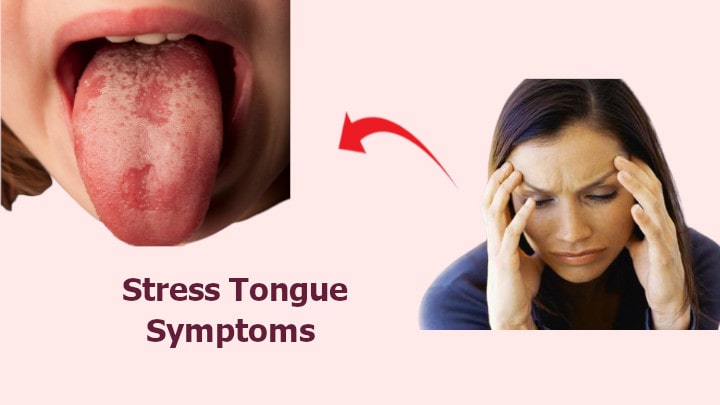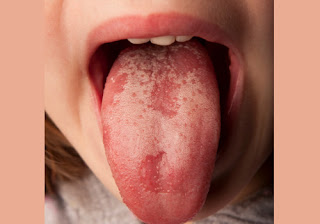What is Stress Tongue Symptoms and How to Prevent it

Are you experiencing any stress tongue symptoms? If so, you’re not alone. Tongue stress is actually a type of tension can cause a number of problems, including difficulty swallowing and breathing.
If you’re experiencing any of these symptoms, it’s important to get checked out by a doctor. In the meantime, here are some ways to help relieve tongue stress symptoms.
In this article, we will discuss the stress tongue symptoms and how to deal with them.
In This Article
- Stress Tongue Symptoms
- Oral Anxiety Symptoms
- Does Stress Affect Tongue
- Can Stress make your Tongue feel weird
- Can Stress cause Tingling Tongue
- How to Prevent Stress Tongue Symptoms
Stress Tongue Symptoms

The term “anxiety tongue” or “stress tongue” refers to the tingling feeling that certain persons with anxiety disorders frequently feel on their tongue. Along with swelling, muscle spasms, and burning feelings, anxiety tongue is also possible. Your stress reaction and your emotional response to anxiety are related.
There are a few different types of anxiety that can cause stress tongue symptoms, such as social anxiety disorder, generalized anxiety disorder, panic disorder, and obsessive-compulsive disorder. Each of these disorders has its own set of symptoms that can affect your tongue.
If you’re experiencing any of the following tongue symptoms as a result of anxiety, it may be helpful to see a therapist or doctor who can help you manage your symptoms and improve your overall mental health.
Some of the most common stress tongue symptoms include:
1). Your tongue may experience sensations such as tingles and numbness
2). Tongue may have an itchy or burning sensation.
3). Dry mouth
4). Difficulty swallowing
5). Difficulty breathing
6). Feeling of heaviness in the chest or neck
7). Tongue may feel like it is sore or in pain.
8). Tongue may also have an itchy or burning sensation.
9). Additionally, your tongue may appear to be swollen.
10). Some people have a metallic or bitter taste in their mouths due to anxiety.
Oral Anxiety Symptoms
Oral anxiety is a condition in which people experience significant anxiety or stress Oral anxiety symptoms can be very disruptive, leading to problems with both personal and professional life. If you are diagnoses with oral anxiety, it is essential that you seek treatment.
There are many oral anxiety symptoms, but here are a few that are commonly experienced:
1. Difficulty Sleeping
People with oral anxiety often have difficulty sleeping due to the worry and stress that their anxiety causes.
2. Dry Mouth
People with oral anxiety often have a dry mouth due to the fear of speaking in public or in front of others.
3. Restlessness
Oral anxiety often leads to increased levels of restlessness and agitation, which can make it difficult to stay still or sit still for any length of time. This can also lead to problems with concentration and focus, as well as difficulty staying calm during stressful situations.
If you’re experiencing any of these symptoms, it’s important to seek out professional help. A therapist who specializes in oral anxiety may be able to help you learn strategies for dealing with your anxiety.
Does Stress Affect Tongue
Yes stress may effect your tongue. your tongue can be hurt from stress. Some evidence that stress can actually affect the function of the tongue.
This can lead to problems with swallowing and speaking, as well as difficulty chewing and digesting food. Along with swelling, muscle spasms, and burning feelings, anxiety tongue is also possible.
So, if you’re experiencing a lot of stress in your life, it may be a good idea to seek out professional help.
Can Stress make your Tongue feel weird
Yes, stress can definitely affect a person’s tongue. Anxiety can cause you to feel tense and stressed, which can lead to problems with your mouth including dry mouth and a feeling of stickiness in your mouth.
Additionally, stress can also make it difficult to speak clearly or even eat. If this is happening to you, it’s important to seek out help from a doctor or therapist who can help you manage your stress and improve your overall oral health.
Can Stress cause Tingling Tongue
Yes stress can cause tingling or numbness in the tongue – especially if the person is experiencing anxiety in their life, such as at work or in social situations.
The sensation is a sign that you’re experiencing an adrenaline rush, which is usually associated with a fear response. This response can cause your body to release chemicals such as norepinephrine and dopamine, which can cause sensations such as tingling or numbness in different parts of the body.
If you are experiencing this symptom and it is causing significant discomfort or distress, please feel free to contact your doctor for further evaluation.
How to Prevent Stress Tongue Symptoms
Here are some general tips that may help include:
1. Exercising Regularly
One of the best ways to reduce anxiety symptoms is by engaging in regular exercise. Not only does exercise have physical benefits, but it can also help to improve mood and decrease stress levels.
Try to get active for at least 30 minutes a day, and make sure to include some types of exercise that are both challenging and enjoyable.
2. Try to Relax
One of the main ways to prevent anxiety is to relax yourself. This can be done by practices such as mindfulness, deep breathing, or meditation.
3. Avoid Excessive Caffeine and Sugar
Caffeine and sugar are both stimulants, and can increase anxiety levels in some people. Try to limit your intake of these drinks if you’re struggling with anxiety symptoms.
4. Eating Healthy foods
Eating healthy foods can help relieve stress and improve your overall mood. This isn’t just beneficial for your physical health – eating well can also boost your productivity and creativity.
5. Make sure you’re getting Enough Sleep
Sleep is crucial for healthy emotional functioning, and insufficient sleep can lead to anxiety symptoms. Try to get at least 7 hours of sleep every night if you want to minimize your risk of developing anxiety disorders.
6. Practice self-care
Taking care of yourself emotionally and mentally is essential for preventing anxiety symptoms. This means taking time for yourself each day, whether that’s spending time reading, going for a walk, or doing something that you enjoy.
7. Deal with stress in a healthy way
If stress is unavoidable, try to deal with it in a healthy way rather than letting it build up until it becomes overwhelming. This could involve practicing yoga, meditation and deep breathing exercises.
8. Taking breaks
When you’re feeling stressed out, it can be hard to focus on anything else other than the task at hand. This is especially true when it comes to tasks that are physically demanding, like speaking or eating. Try taking regular breaks throughout the day to help you clear your head and calm down.
9. Talk to a professional
If all of these tips aren’t helping enough, it may be worth seeing a professional. A therapist can help you identify and deal with your triggers, develop strategies for self-care, and also provide support during times of stress. They may also be able to recommend additional treatments or therapies that are specific to your situation.
In Closing
In the end, we can say that stress has a major role in causing tingling tongue. When you get overwhelmed due to emotional issues, sometimes your tongue gets sensitive.
Stress causes tingling tongue due to excessive secretion of adrenaline and other stress hormones. To prevent this from happening again, make sure you take time out for yourself and focus on positive thoughts. That way, no matter what happens around you, you can be calm and focused on solving your problems.
Be sure to Read
In Closing
- Oral mucosal diseases in anxiety and depression patients
- Effect of stress, anxiety and depression on unstimulated salivary flow rate and xerostomia
- Stress related oral diseases-A research study





